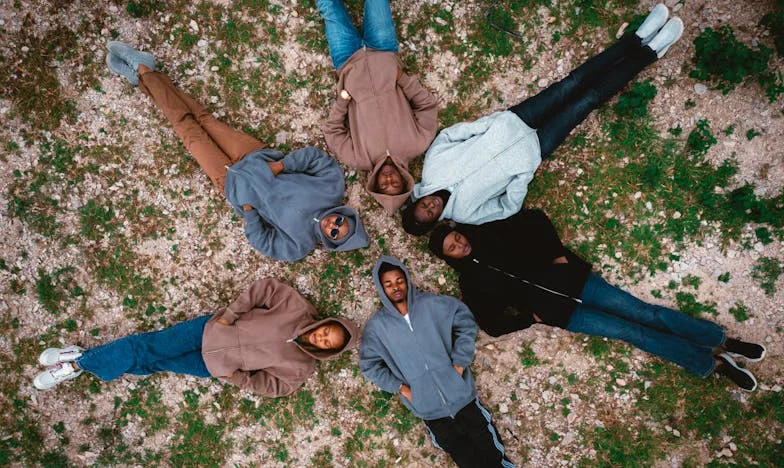Torn at the Core: A Mother’s Love and a Wound That Won’t Heal
“Why won’t you answer my calls, Tyler?” My fingers trembled as I pressed redial for what must’ve been the tenth time that evening. The wind rattled the window of my small living room in Cedar Falls, Iowa, but inside, the cold was coming from my own heart. I stared at the phone, half-expecting it to ring back, half-hoping it wouldn’t.
It was almost midnight, and I was sitting alone on the faded couch, clutching the only photograph I had of Tyler—the one from his high school graduation, before Aneta came into our lives. I traced his face with my thumb, remembering his crooked smile, the way he used to say, “Love ya, Mom,” without a hint of embarrassment. Those were the days before everything changed, before I lost him to her.
I still remember the first time he brought Aneta home. She was all bright lipstick and nervous laughter, her hand gripping his so tight her knuckles turned white. “This is Aneta,” Tyler said, pride and something defiant in his voice. I tried to smile and welcome her, but something inside me recoiled. She wasn’t from here—her parents had moved from Chicago, and she seemed so…polished. Too perfect. Not right for my boy.
“Mom, you never give anyone a chance,” Tyler snapped at me once, months later, after another dinner where I’d tried to hide my irritation and failed. “She loves me.”
I wanted to say I loved him more, but the words caught in my throat. How could I compete? How could I let go of the child I’d raised alone since his father walked out when Tyler was seven? I’d built our life with my own hands, taking on double shifts at the hospital, skipping meals so he could have enough. And now, I was expected to hand him over to a woman who barely looked me in the eye?
I know what people think about mothers-in-law. I swore I’d never be that woman—the one who meddles, who makes holidays tense, who never thinks anyone is good enough. But every time Aneta called, I heard judgment in her voice. Every time she posted pictures of them smiling on Facebook, I felt invisible. When Tyler and I argued, she’d text him until he left the room. It was easy to blame her for the growing gap between us.
The worst fight happened last Thanksgiving. “You’re not coming?” I asked, voice shrill, when Tyler said they’d be spending the holiday with Aneta’s parents in Chicago.
“It’s just one year, Mom. We’ll be back for Christmas.”
“Just one year? That’s what you said last time. I guess family doesn’t matter anymore.”
“Don’t do this. Please.”
But I couldn’t stop. The words spilled out—accusations, anger, hurt I’d been nursing for years. Tyler hung up. He didn’t call back. He didn’t come home for Christmas, either.
The silence between us stretched for months. I watched the mail for a card, the phone for a message. All I got was a group text: “Hope you’re well, Mom. We’re busy with work. Love, Tyler and Aneta.”
It felt like a slap.
I started to unravel. My friends said I needed to move on, to let Tyler live his own life. “He’s a grown man, Bogie,” my friend Linda said. “You can’t hold on forever.”
But letting go felt impossible. I replayed every moment, every slight, every time Aneta corrected me or rolled her eyes when I talked about Tyler’s childhood. My resentment grew into something poisonous. I blamed her for everything—the distance, the silence, even the ache in my chest when I woke up alone every day.
Then, one icy night in February, my phone rang. It was Tyler. “Mom,” he said, voice thin. “Aneta’s in the hospital. Can you come?”
I threw on my coat and drove through the snow, heart pounding. When I arrived, Tyler was in the waiting room, eyes red. Without thinking, I hugged him. For a moment, he let me.
Aneta had lost their baby. I watched her lying in that hospital bed, cheeks wet with tears. She looked so small, so broken. Tyler held her hand, whispering to her, and I realized—with a jolt—how much he loved her.
After the nurses left, I stepped into the room. I wanted to hate her, to blame her again. But I saw the pain in her eyes and something inside me cracked. I remembered all the nights I’d cried for Tyler, all the times I’d felt alone. I sat by her bed and took her hand.
“I’m sorry,” I whispered. “I know I haven’t made this easy.”
She squeezed my fingers, silent tears running down her face.
Tyler looked at me, hope flickering in his eyes. “Can we try again, Mom? Please?”
I nodded, the anger draining out, leaving only grief and a fragile hope. We sat together—three people bound by loss, by love, by the stubborn belief that family might be worth fighting for.
Now, months later, things aren’t perfect. Some days, the old bitterness creeps in. But I try. I remember that loving Tyler means loving the people he loves, too. And I wonder—how many families are torn apart by pride, by fear, by wounds that never quite heal?
If you were in my shoes, would you have let go sooner? Or is it always this hard to forgive and move forward when your heart feels torn in two?
